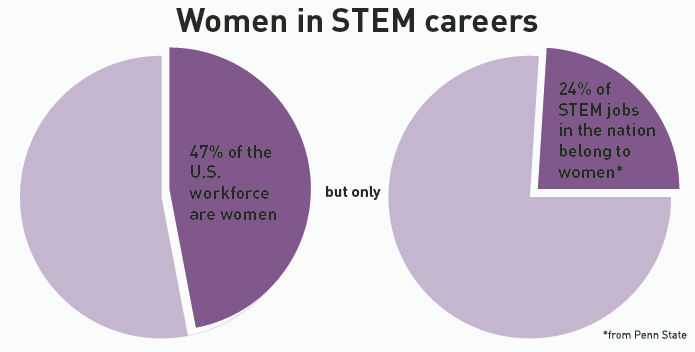Letter: Requiring master’s hoods at commencement strains already stretched pockets

Interested candidates for summer jobs should contact Amber Mohmand at [email protected] for more details. Those interested in applying to work during the fall/spring term should contact Katherine Kealey at [email protected].
April 4, 2018
In one month, my father, my partner and mi suegra will arrive in Ames (my father for the first time), to join me in celebrating my graduation from Iowa State with an MFA in creative writing and environment. They’ll get to attend our program reading, a cohort of nine writers of poetry, fiction and nonfiction, and they’ll sit in Hilton Coliseum as I walk across the stage to accept a replica of my diploma — that is, if I purchase an additional $40 master’s hood from the University Bookstore.
Last week, the university announced all graduate students who would like to take part in the commencement ceremony must purchase and wear a master’s hood “to symbolize the significant accomplishment of earning a graduate degree.”
For some of us, affording our family and friends the opportunity to see us on that stage, to hear each syllable of our name pronounced as close to correctly as the announcer can manage, is in itself a memorable accomplishment. But here at Iowa State, that moment may no longer arrive without an additional undue financial burden imposed upon graduate students — many of whom are unpaid or underpaid for their workload.
This topic first came to my attention in January when I received an email from my GPSS senator in the English department. His email included a link to a survey crafted by Dean of the Graduate College William Graves, which included a series of questions pertaining to whether requiring master’s hoods is popular or might constitute a financial burden on some graduate students. The simple inclusion of these questions brought to light the fact that William Graves and Vivek Lawana, president of GPSS, were both aware of the potential financial burden and continued along with the implementation of this policy.
Regardless of the results of this survey, which have not been made available to graduate students upon request, adding additional costs for graduation in our current era of ever-inflating tuition and student fees suggests our university remains grossly out of touch with the diverse social and financial classes represented here and believes in symbolic displays of hooded knowledge over an inclusive and accessible celebration of achievement. What’s more, these decisions, small as they may be in their $40 imposition on our monthly budgets, reflect a continual distancing from the founding ideals of this land grant institution.
Many of you may have walked past the plaque just north of Beardshear Hall which states “Iowa started an education revolution as the first state to accept the 1862 Morrill Act terms. The act allowed Iowa to sell federal land to finance a new college open to all regardless of wealth, race or gender.”
Iowa State became the nation’s first coed land-grant school when it opened its doors in 1869. Education remains a heated point of debate across this country. With increases to tuition and student fees on a yearly basis and the reduction of financial aid resources under the Betsy DeVos administration, our country’s student loan debt continues to rise, reaching new peaks every year.
While a $40 increase to participate in commencement pales in comparison to these larger trends, it represents a similar ideal on campuses around this country — students, graduate students in particular, can be squeezed.
Graduate student labor, along with adjunct positions, continue to provide the backbone to our country’s education system. While I’ve been blessed with a generous stipend here at Iowa State compared to other programs around the country, many graduate students do not have it so well, and adjunct faculty generally receive paltry pay and no health benefits. Even at Iowa State, we see university structures increasing the workload on the lowest paid faculty and students who serve as instructors.
Just last year, a student from my program received only half of her final month’s paycheck due to the timing of her visa and what the university was willing to pay based on that date of expiration. Mind you, that student had already completed all of her work; the final paycheck is for services in May, and she did not receive clarification about this reduction until after she submitted her final grades.
It caused me pause to see the university keep money from an international graduate student, while allowing its previous president to use a private jet for personal vacations with little to no repercussions.
Even if that $500 my friend went without does not seem like much to the department chairs and deans and our own current president, whom I hope are all worth their salaries that dwarf the majority of faculty and graduate students on this campus, that money is invaluable to students transitioning from their academic programs in search of employment. These discrepancies in whose pay is withheld points to a problem within academia that reflects the broader economic issues our country has long faced — many people are underpaid (or not paid at all) while many people are egregiously overpaid.
All of this is simply to say, our university along with many others, remains grossly out of touch with the pulse of diverse financial situations on this campus. Even while writing this letter, I have heard from Lawana that “It is optional for you to order hoods at this point,” a statement in stark contrast to the initial policy announcement last week.
But I wonder, what is the point of even considering to add an additional financial burden to any student on this campus for the sole purpose of “symbolizing an accomplishment?” Are we still the land-grant institution created to provide opportunity regardless of wealth, or have we fallen so far since our founding that pomp and circumstance and attire takes precedent of accessibility? That’s some education revolution, Iowa.















